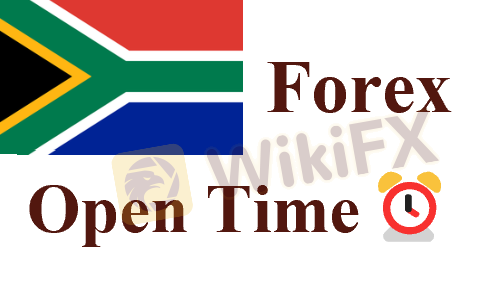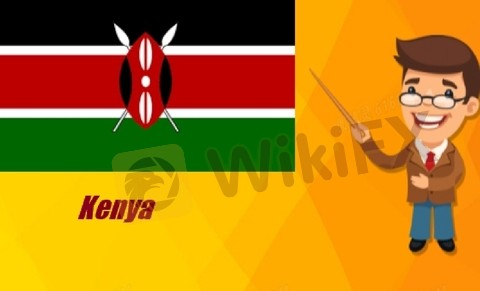The forex market is the largest financial market globally, and forex trading occurs not in a centralized location but among participants across various global markets through telephone and Electronic Communication Networks (ECNs). As widely known, the forex market operates 24 hours a day, but do you know the reasons behind it?
Individual investors cannot monitor it 24 hours a day. In reality, for the vast majority of people, it is not necessary to do so. You only need to be aware of a few crucial trading sessions, engage in trading during these periods, and benefit from the day's highest volatility and lowest spreads. So, what are these trading sessions? In South Africa, when should investors trade? What are the considerations?
In this article, we will provide answers to these questions one by one.
Why Does the Forex Market Trade 24 Hours a Day?
The Forex market is a global marketplace for currency exchange and trading, involving participants such as currency buyers and sellers, as well as intermediaries. Unlike traditional stock exchanges with physical locations, the Forex market exists in both tangible and intangible forms. It operates globally through modern communication tools like phones, telegraphs, trading networks, and the internet. One distinctive feature of Forex trading, compared to other markets like stocks and bonds, is its continuous 24-hour availability. The reasons behind this can be explained from two perspectives.
From the perspective of Forex market participants, international banks play a major role, conducting large volumes of Forex transactions. These banks engage in Forex trading for various purposes, including adjusting their own positions, meeting customer demands, capitalizing on arbitrage opportunities for legitimate profits, and executing national policies. Since the demand from banks is continuous during working days, and different banks in various countries operate in different time zones, the Forex market needs to remain open 24 hours a day to facilitate smooth Forex operations for banks worldwide.
From the perspective of the Forex market itself, the essence of Forex trading involves the exchange of different currencies. This characteristic makes the Forex market international, spanning various countries and regions rather than being confined to a specific nation or area. Currently, there are over thirty Forex trading markets worldwide, situated in different countries and regions across continents. These markets have overlapping and interconnected trading times, facilitated by advanced communication infrastructure and technology. Therefore, except for weekends and major holidays, the Forex market operates continuously from Monday to Friday, providing an investment venue without time or space barriers for investors.
The 24-hour availability of the Forex market enables banks from different countries and regions to execute their Forex-related functions smoothly, ensuring the proper functioning of economies. Ordinary traders with a demand for Forex investment also enjoy greater trading flexibility, allowing them to devise more favorable trading strategies based on their needs and schedules. Additionally, currencies from various countries and regions have the opportunity to be traded, achieving international alignment of currencies.
The Four Major Forex Trading Sessions In SAST
The Forex market is divided into four major trading sessions: Sydney, Tokyo, London, and New York. They open at different times during a day, considering South Africa's time zone:
| Trading Session | Time Open (SAST) |
| Sydney | 11:00 pm to 8:00 am |
| Tokyo | 2:00 am to 11:00 am |
| London | 9:00 am to 6:00 pm |
| New York | 3:00 pm to 12:00 pm |
| 1 | 2 | 3 | 4 | 5 | 6 | 7 | 8 | 9 | 10 | 11 | 12 | 1 | 2 | 3 | 4 | 5 | 6 | 7 | 8 | 9 | 10 | 11 | 12 |
Sydney Trading Session:
Traditionally, the international date line, where a new calendar day begins, is located in New Zealand. Combined with New Zealand being a significant financial center, the Forex market opens here on Monday morning while most places are still in Sunday. Although trading begins in New Zealand, it is referred to as the Sydney trading session. Despite being a relatively small market compared to others, Sydney often experiences relatively high volatility, especially after the weekend pause.

Tokyo Trading Session:
Also known as the Asian session, this period is characterized by relatively slow price movements. During this time, spreads on most trading platforms tend to regularly widen. Retail Forex traders pursuing volatility arbitrage often overlook this market segment due to increased costs and lower liquidity and volatility. However, the lower volatility makes predicting price trends during this session relatively easy.

London Trading Session:
Among all existing trading sessions, this is the most volatile, with the highest trading volume and fastest price movements. The volatility during this Forex market session may either work in favor or against traders. Rapid price changes make it challenging to predict certain movements, making establishing positions relatively difficult. However, if your trend analysis is correct, you may appreciate the volatility during this specific period. The most active currency pairs during this session are those paired with the British Pound, US Dollar, and Euro.

New York Trading Session:
The New York trading session begins after the opening of the New York Stock Exchange. This market period is primarily driven by U.S. activity and contributions from Mexico, Canada, and other South American countries. The volatility during the New York Forex market session is second only to the London session. The primary currencies traded during this period are the British Pound, Euro, Australian Dollar, and U.S. Dollar. As the New York market session approaches its close, with the addition of the Sydney trading session, trading volume gradually diminishes, and price volatility significantly decreases.

Daylight Saving Time (DST) in Forex Trading:
It is essential to note that some Forex markets have different opening and closing times in October/November and March/April due to Daylight Saving Time (DST) changes in certain countries (such as the United States, the United Kingdom, and Australia). Among the four major trading sessions mentioned earlier, only Japan does not observe Daylight Saving Time. The opening and closing times of the main Forex markets shift by one hour during DST, which varies in different countries/regions.
In practical terms, the impact of Daylight Saving Time and Standard Time on regular traders is minimal. For most traders, holding positions is either long-term or short-term, and few traders are sensitive to opening or closing times. However, for automated traders or those who engage in opening trades at specific times, the impact can be more significant.
Ideal Trading Times for South African Forex Traders
The 24-hour operation of the forex market also brings some drawbacks to traders. For example, traders may miss some trading opportunities due to time differences. Some traders may force themselves to trade during the optimal hours, leading to disrupted sleep patterns and a lack of rational analysis in their trading activities. Fortunately, for South African traders, these concerns are not relevant. To capitalize on maximum price volatility throughout the day, the ideal trading time is from 9 am to 10 pm (SAST). This timeframe includes the opening of the London session, the New York session, and the London/New York overlap. During these forex market trading hours, you will be able to conduct transactions when prices are at their most active levels. The most active period in the forex market occurs during the overlap of the London and New York trading sessions, specifically from 2 pm to 6 pm South African Standard Time.

Is Night Trading Suitable for South Africa?
For individual investors in South Africa, trading at night is not necessary. Fortunately, the most active trading times occur during the day, making it convenient to trade when price volatility is highest. Nights in South Africa correspond to the relatively inactive Tokyo and Sydney sessions. When market trading volume is reduced, holding positions at night has the main drawback of dealing with significant spreads, which is common across all Forex brokerage firms. Larger spreads, compared to smaller spreads, result in lower average risk-return ratios for traders.

In a Week, How Do Trading Conditions Vary Each Day?
We already know that the forex market operates 24 hours a day on weekdays, but is the trading environment the same throughout the five-day week? The answer is no. On average, the volatility and trading volume in the forex market are slightly lower on Mondays and Fridays compared to the middle of the week (Tuesday to Thursday).
Monday marks the beginning of the week, and in contrast to the active market conditions over the following three days, Mondays tend to be less vibrant. During this time, the market has not yet established a trend, and traders are often awaiting the release of economic data. This period is crucial for the market to determine the potential direction for the week. Considering this, it is advisable to exercise caution and stay on the sidelines on Mondays.
Friday mornings can experience some volatility, but as time progresses, the market tends to cool down. While trading volumes may still have the potential to rise significantly, market trends can reverse, resulting in losses for some traders. The last 24 hours of the trading week typically exhibit lower liquidity as a predominant characteristic. As you may know, technical analysis tends to be more effective in high-liquidity markets.

Disclaimer
Traders need to understand and remember that Contracts for Difference (CFDs) are leveraged and complex products, which may involve the risk of incurring losses exceeding the trader's initial deposit. Traders must ensure that they comprehend their own risk exposure and should assess whether the risks involved are suitable for them before making trading decisions that could potentially lead to capital losses.
Bottom Line
Although the forex market operates 24 hours a day, five days a week, it's not feasible for you to spend all your time analyzing charts. In reality, the best market liquidity, volatility, and trading conditions often occur during the London session and the early US session. During these periods, some of the most important central banks, speculators, businesses, financial institutions, commodity markets, and stock markets are highly active, all of which can have a meaningful impact on the currency market. Therefore, the optimal trading time for South African forex traders is during the daytime, which is very convenient.
Remember to incorporate a risk management plan into your strategy and trade at your most convenient times.
If you want to trade like a professional, it's essential to do your homework before diving into trading and conduct more research on the brokers you're interested in. Visit our website (https://www.WikiFX.com/en) or download the WikiFX APP now to access more information and resources related to forex.

You Also Like

Best Forex Brokers in Turkey for 2024
Review top 9 forex brokers in Turkey, elevating their trading pros and cons to give traders more useful guidance.

Best Forex Brokers for Beginners in the United Arab Emirates for 2024
Select the top forex brokers for beginners in UAE from the many available to ensure a safe trading environment.

Best Swiss Forex Brokers for 2024
Explore top 10 forex brokers in Switzerland, elevating their trading pros and cons to give traders more useful guidance.

Best Stock Brokers in the US for 2024
When choosing an online broker, finding the platform that best fits your investment needs is crucial. With the rise in popularity of online trading, more brokers are offering free stock trading and commission-free transactions for various assets. It has become a challenge for users to select suitable brokers.



























































